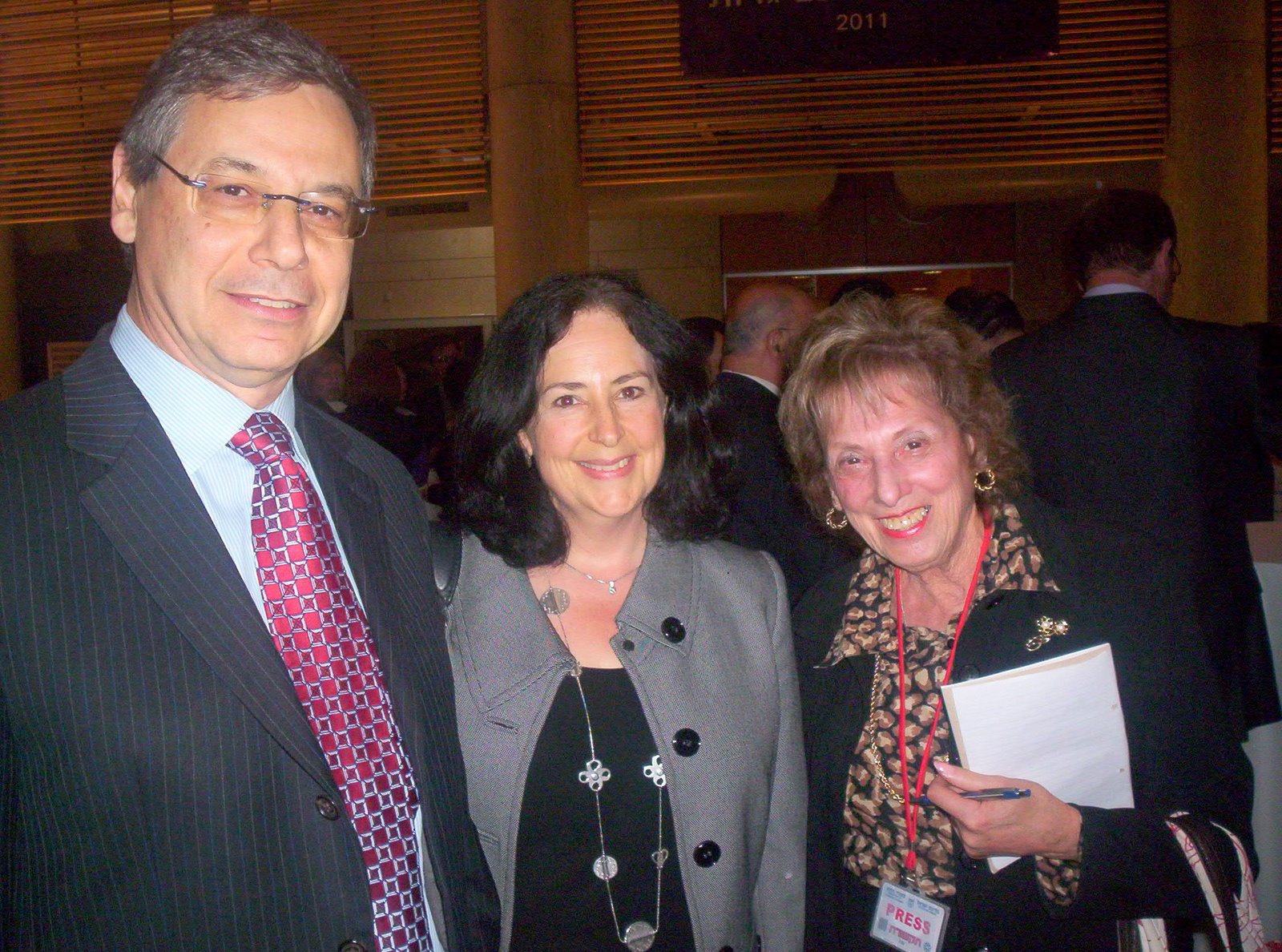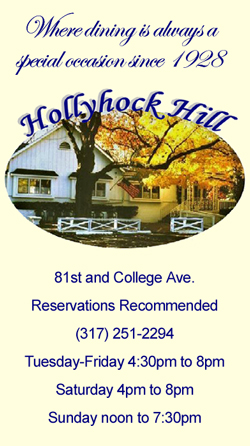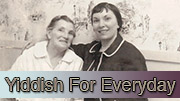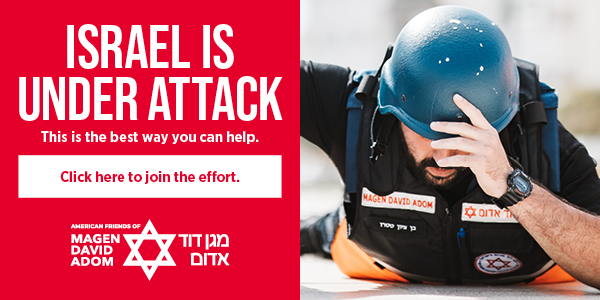By Sybil Kaplan
We had been in Israel one week short of three years, and although we have attended many simchot, heard about weddings from friends (and from my daughter who has gone to many weddings), when our friend called to ask if we would like to attend the wedding of his daughter, we were thrilled. And when the invitation arrived, that was exciting. Barry wore a nice white long sleeve dress shirt and nice dress pants and a blazer. I wore a long black linen dress and sandal heels. We met at Jerusalem’s Inbal Hotel where the Egged Tours bus arrived just before 6 p.m. As 44 of us boarded the bus, one gentleman called it the geriatric bus!
There were young and old, religious and secular. The Americans were dressed for a wedding – nice dresses, long dresses, long skirts for women; white shirts and nice slacks for men. Most of the Israelis looked like they were going to a sports event including men wearing khakis and jeans and women in everyday slacks.
The bus left at 6; drove past Tel Aviv at 7 and continued past Herzlia and Pituach to Rishpon, a small village. Originally founded as an area of small farmers in 1936, it now has a population of about 1,000 with lovely, single-family houses and a shopping outlet mall.
We drove through a gate, across railroad tracks and down a tree-lined country road then a single-lane road to a parking lot, arriving a little after 7:30. After making our way by foot down an unpaved road, we arrived at Tapuach Rishpon, a wedding location. We walked on a wooden walkway with lanterns overhead to a desk where we received our place cards and table assignment. A bin was there to leave gifts and a barrel, like the ones used in lotteries, plus a group of blank envelopes on the desk were there to drop checks.
My daughter recently mentioned how expensive it was to go to weddings of her friends because everyone gives a check, and then it is more costly if you go to the bachelorette party. We brought a gift and noticed there were many others in the bin.
We walked around the manicured, grassy outdoor garden (a bit of a challenge for women in heels) where three stations were set up with hot hors-d’oeuvres. Waiters and waitresses passed others; one bar offered a wide variety of alcoholic and non-alcoholic beverages; another area offered any kind of coffee one would want. Tables and bar stools were scattered around the lawn for eating each holding a container of gummy bear candies on skewers.
A friend, also at the wedding, said she once worked for a synagogue administrator and the rabbi had a rule – no eating before the chuppah, otherwise, it was like “sandwiching the ceremony between two eating gorgings.”
The disc jockey sat on one part of the dance floor playing music loudly. The bride and groom mingled among the 350 guests who were a wide variety of ages and in a wide variety of clothes ranging from sporty to evening clothes.
Shortly before 9, people moved to an area which looked like a lush forest where the chuppah had been set up on a platform. Five little girls in white strapless dresses played there. A white sheet led to the steps.
Finally the rabbi arrived, checked out the wine and announced the groom would walk down to the chuppah. Wearing a dark suit and white shirt and tie, he walked down the white path with his parents as loud music and cheers erupted like at a sports event.
The five little girls scattered rose petals and the bride wearing a white wedding gown, her shoulders now covered with a lace jacket and a veil, walked down with her parents with loud music and cheers from the crowd, also like at a sports event. She stopped part of the way down and the groom came to cover her face with the veil.
The ceremony lasted about 25 minutes. After the groom broke the traditional glass, the crowd cheered “Mazal Tov!” and it looked like their close friends and family ascended to the chuppah platform to congratulate them.
Meantime, everyone else adjourned to the main entry area where 35 tables had been set up on wooden platforms and where food stations had been set up for the buffet dinner. Four hot entrees were offered as well as side dishes and salads. The disc jockey continued playing during dinner and for dancing, but there was no slow music which we would have liked in order to dance.
The Jerusalem bus group gathered by the bus in the parking lot at 11, and the bus driver returned soon after to take the weary group the one and a half hours back to Jerusalem.

Deputy Minister of Foreign Affairs, Danny Ayalon; Director General, Israel Office, The Jewish Federations of North America, Rebecca Caspi; and your reporter, Sybil Kaplan. Photo by Barry A. Kaplan/Jerusalem
Ambassadors, Diplomats and Animation
It isn’t often that one gets invited to a social evening at the Foreign Ministry so when we, as members of the international media, received an invitation from the Deputy Minister of Foreign Affairs, Mr. Danny Ayalon, and the Deputy Director General for Cultural and Scientific Affairs, Mr. Raphael Gamzou, we were eager to attend.
After passing security, we crossed a courtyard and entered the atrium where buffet tables offered beverages; sandwiches, cold cuts, finger hors d’oeuvres, veggies, fruit and desserts while waiters and waitresses passed around the room with Israeli specialties – kubeh (a fried dumping with meat inside); burekas (a baked, filled pastry from phyllo dough), stuffed grape leaves and schnitzel (boned and fried chicken).
We walked around asking people, “who are you?” We met: the Ambassador to Sri Lanka, in Israel two years; the Ambassador to Honduras, in Israel one and a half years and with whom we shared that my daughter had been to Honduras, learned to scuba dive there and loved it; a diplomat from Kenya, in Israel three years; a diplomat and his wife from Argentina, in Israel one month; the Cultural attaché from the Philippines, in Israel three months; and the Cultural Attachés from Mexico and China. The Assistant Cultural Attaché from Moscow was an especially personable young man who had learned Hebrew and Israel culture before arriving.
After a while, the assembled group was invited to go downstairs to an auditorium. Deputy Director Danny Ayalon explained that “culture is what binds us all, a basic way of human communication….Culture is the greatest bridge to overcome political divisions,” he said. “If politics divides, culture unites.”
Deputy Director Gamzou then introduced the Revolution Orchestra, an Israeli avant-garde ensemble, which performed original Israeli compositions while The Animation Project presented animation films. Deputy Ayalon expressed the hope that the orchestra and animation project would be booked by the various diplomats for performances. The evening closed with Deputy Ayalon’s staff surprising him with a birthday cake.
The World’s Only…
Shivtei Yisrael Street in Jerusalem is an interesting street; it name means “tribes of Israel,” and it was called this in honor of the Jews of the Diaspora who made aliyah after the establishment of the State. Located on this street, behind the City Hall, a few doors from Yad HaKashish (the workshop where handicrafts are made for sale by the elderly), is Ma’aleh, the world’s only Jewish film school. Ma’aleh is also the only film school in the world devoted to exploring the intersection of Judaism and modern life. With 70% of the students from the Orthodox Jewish community, Neta Ariel, an Orthodox woman, is director of Ma’aleh.
Established 22 years ago, the students learn filmmaking and television – producing, directing, cinematography, editing, and sound and lighting design in four-year programs and scriptwriting in a two-year program.
Media Central, an independent media-liaison organization and support service for foreign journalists, offered this visit as part of its weekly wine and cheese briefings for “TGIT” (Thank Goodness It’s Thursday).
Einat Kapach, director of international relations and special projects, and a graduate of Ma’aleh, explained that each year student learn to make films; the fourth year is devoted to writing, preparing, shooting and editing a graduate film.
“Students come from a point of view of reality not propaganda,” said Ms. Kapach. “Even if conflicts are strong, they are modest; the students make films from their own private stories.”
The school provides the equipment and students find additional funding sources. We then viewed three student-made films.
A Jerusalem Tale was directed by an Orthodox woman. It showed what happened when an elderly Orthodox man, who was a guide, had a car accident causing his wife to lose her front teeth. He then found out replacing them was not covered by his health plan. In order to earn the money, he took on a job for a Norwegian group to act as their Santa Claus. Here we saw the meeting between two cultures and the special love he had for his wife, prompting him to take such a seemingly incongruous job.
Barriers is winner of two 2011 film festival awards, most recently, the Munich Film Festival. In this very realistic story, a young Israel Defense Forces soldier is commander – with two other soldiers – of a checkpoint in a disputed area. Two women from an organization that concerns itself with treatment of Arabs arrive to interfere with the process of Arabs crossing into Israel territory when word comes that an attack is imminent. The barrier must be closed but then an ambulance arrives, ostensibly with a sick child and her mother.
“This film shows a really complicated situation because everyone is right and everyone is a victim,” said Ms. Kapak.
The third film we viewed was made by Katie Green, a graduate of the school and wife of Aryeh Green, Media Central director. 16 shows what happens when two Jewish boys and two Muslim boys share a room in a boarding school in Jerusalem and how their coming of age affects them and their parents and how they relate to each other. An afterword told what had happened to each of the boys after leaving the school.
The Ma’aleh booklet explains it clearly. Graduate films, produced by students, “whose cutting-edge work bridges Jewish tradition and the modern world,” bring the real Israel to film and television audiences throughout the world and to international film festivals.
Sybil Kaplan is a journalist, book reviewer, food columnist and feature writer who moved from Overland Park,






